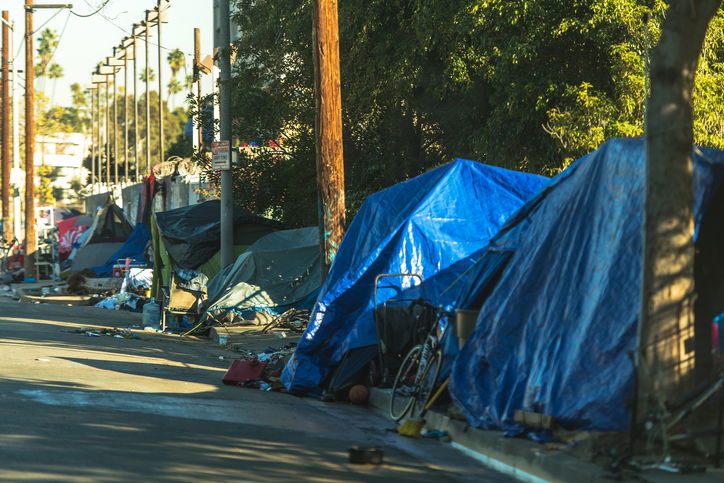
February 28, 2024
Arizona GOP Approves Bill Banning Basic Income Program That Tackles Homelessness
So what is their solution?
Republican lawmakers unanimously voted in favor of a bill that blocks guaranteed basic income in Arizona.
GOP representatives voted in favor of House Bill 2375, prohibiting guaranteed-basic-income programs, despite Arizona being number four on the highest rate of homelessness in the United States. Such defined programs offer qualifying families and individuals living at or close to the poverty line regular government payments for a certain period of time. However, HB 2375 co-author Rep. Lupe Diaz likened the programs to socialism and called the payments “unearned.”
HB 2375 bans “any program where persons are provided with regular, periodic cash payments that are unearned and that may be used for any purpose,” not including work or training programs. While no Democrat voted in favor of the bill, it still needs to pass the Arizona Senate before becoming law. To date, Arizona’s Senate consists of 16 Republicans and 14 Democrats.
If the bill does pass, homeless hotel programs in cities like Mesa and Scottsdale would be outlawed. Republican bill supporter Matt Gress said that hotels serving as homeless shelters and being open to the public doesn’t solve the problem of homelessness.
“Renting out rooms doesn’t really get to the heart of the matter in getting services, help and structure to people who are living on the streets,” Gress said.
Local leaders disagree, however. Through a program called Off the Streets, the city of Mesa has helped close to 2,000 struggling families. Mesa City Manager Ian Linssen would like to keep the program going by renting out hotel rooms. With the bill banning state and local dollars from being used for mixed hoteling, only federal dollars would be allowed, making it difficult for the program to progress.
“We’ve helped since the program began, 1,600 people who’ve moved positively out of the program,” Linssen said. “It is difficult, as you may imagine, to access and use federal dollars. There’s a lot of strings attached with those, and it’s a longer-term process to get access to that, so we would be very limited in our options there.”
Cities across the country have successfully implemented such programs.
The guaranteed-income pilot program in Durham, North Carolina, for example, provides low-income residents a $600 monthly stipend. Baltimore’s Young Families Success Fund provides young mothers $1,000 a month, similar to a program in Oregon that gives monthly payments worth $1,000 to youth living below the poverty line.
Durham’s mayor pro tempore, Mark-Anthony Middleton, noted that many lower-income and Black residents being pushed to the side due to a demographic change: U.S. Census data shows that Durham has become 51% whiter over the last 20 years, and the median home price increased by over 50% between 2010 and 2019.